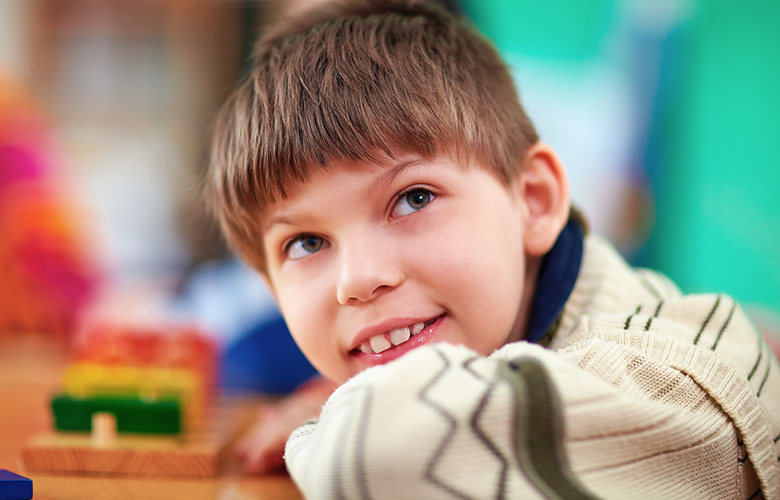- info@InternationalCenterForAutism.org
- 1220 Reba McEntire Lane, Denison, TX 75020
- 126 Nelson’s Bridge Road, Hanover, VA 23069
Services
Autism Services
Autistic children are extremely bright when you connect with them and bring them into our world. At ICA, we combine evidence-based ABA therapy with innovative and forward-thinking practices to create a gold-standard treatment program for children and adolescents with autism. With this approach, we’re able to connect with these young people and help them live with confidence. We encourage you to contact us today for more information about our autism services.
ABA provides you and your child with a goldmine of knowledge, resources, and support, empowering your child to have an independent and productive life. We achieve this by exploring the link between your child’s problematic behaviors and his or her environment. ABA therapists seek to encourage positive, socially appropriate behaviors while reducing or eliminating behaviors that are negatively affecting your child’s ability to learn, communicate, and thrive.
Speech Therapy addresses challenges with language and communication which can vary from person to person. Some individuals on the autism spectrum are not able to speak. Others love to talk, but have difficulty holding a conversation or understanding body language and facial expressions when talking with others. Speech Therapy can improve their verbal, nonverbal, and social communication in order to communicate in more useful and functional ways.
Occupational Therapy uses a variety of strategies to aid in motor development, self-regulation, social participation, adaptive skills, and daily life skills. Sensory integration techniques are also integrated to help children who struggle with sensitivity to touch and clothing textures, light and sound sensitivity, as well as balance and body positioning in space.
Physical Therapy can help children with special needs develop gross motor and basic movement skills. These skills help children play games, sports, take part in physical education with their peers, maximize abilities, prevent future injuries, and participate to the best of their abilities in all aspects of life.
Art Assistance Therapy engages the mind, body, and spirit through kinesthetic, sensory, perceptual, and symbolic opportunities. This form of expressive communication can circumvent the limitations of language, giving voice to experiences and empowering individuals from all walks of life. Goals of art therapy can include fostering self-esteem and self-awareness, promoting insight, reducing conflict or distress, and improving motor skills.
Equine Therapy can improve motor coordination, posture, balance, muscle tone, concentration, self-esteem and self-confidence in riders with special needs. Children who find it hard to speak are taught to use their own words to command the horse on what to do which eventually improves their confidence as well as develop their speech and social skills.
Aquatic Therapy techniques incorporate social interaction to develop emotional regulation skills. Exercise improves blood flow to the brain to enhance cognitive regulation; therefore, pool therapy games such as Simon Says and charades incorporate memory and problem solving. Water temperature influences the level of alertness by stimulating the nervous system; warm water typically relaxes the body which may decrease impulsivity, or actions made prior to thinking through the consequences. Alternatively, cooler water temperatures affects a child who struggles with lethargy and fatigue to maintain attention. With repetition, these therapeutic benefits will become familiar for enhanced carryover to other environments (school, home, community).
Play Therapy is the avenue for healing, growing, exploring, and communicating. With this type of therapy the child is able to gain confidence and control over expressing their feelings and thoughts in the setting of the playroom. The process takes place over time and allows the child to gain a better sense of self and self-worth, which can replace challenging behaviors.
Music Therapy can address a number of sensory needs for children with special needs as it provides concrete, multi-sensory stimulation (auditory, visual, and tactile). The rhythmic component of music can assist in the cognitive organisation of sensory systems for those individuals diagnosed with autism. As a result, auditory processing and other sensory-motor, perceptual/ motor, gross, fine motor and social skills can be enhanced through music therapy.
Social Groups help children gain lifelong skills that will help them to interact confidently throughout their lifetime. Children will learn skills like anger management, initiating conversation, understanding emotions, reading body language, and so much more.
Vocational Skill Training can help those with autism learn how to follow directions, improve motor coordination, and increase consistency, reliability, concentration, as well as social and functional skills to excel at their workplace in the future.
Please check back soon for more details on our computer building & programming therapy. In the meantime feel free to contact us for more details.
Please check back soon for more details on our culinary therapy. In the meantime feel free to contact us for more details.
Please check back soon for more details on our agricultural therapy. In the meantime feel free to contact us for more details.
Please check back soon for more details on our life skills therapy. In the meantime feel free to contact us for more details.



Other Services
- Respite Care
- Job Placement Assistance
- Telehealth
